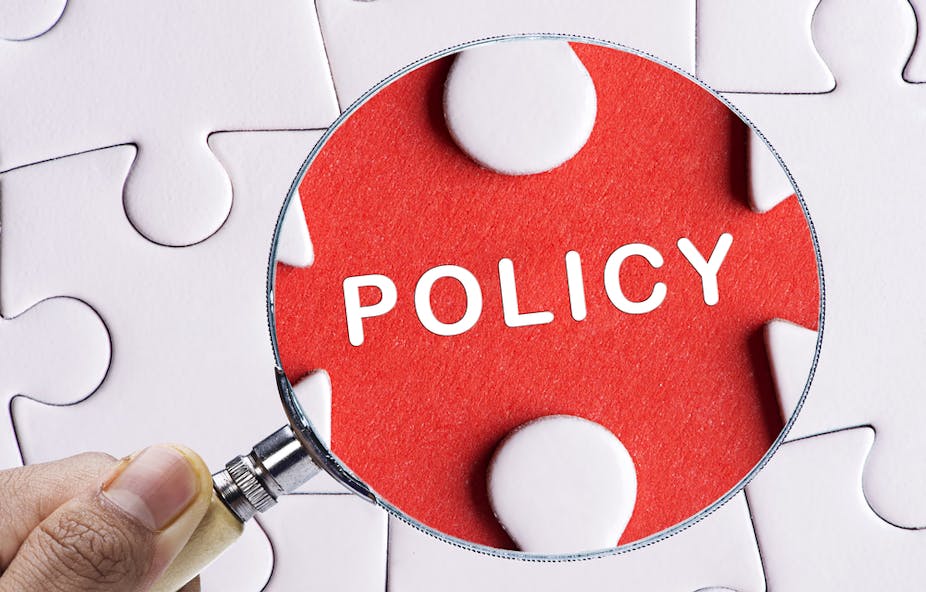African policymakers need access to high quality evidence to implement the UN’s Sustainable Development Goals (SDGs) successfully. The SDGs are arguably the most broad-ranging development goals to be ratified by United Nations member states. Their overall aim is to “leave no one behind” by 2030.
Evidence based research proved key to meeting some of the goals that preceded the SDGs. This was particularly the case for meeting goals related to diseases such as HIV and Aids and malaria. According to UNAIDS, increased research output and better linkages between researchers and policymakers were important for reaching targets set under the Millennium Development Goals.
And yet linking African policymakers with the sort of research that’s relevant for implementing goals is difficult. This is not a problem unique to implementing development goals. But the broad ambition of the SDGs has made identifying and addressing barriers more urgent.
There are at least six main barriers to the use of research in policymaking. These are the complexity of evidence, absence of personal relationships between researchers and policymakers, the time it takes to do quality research, the perceived irrelevance of research, a lack of analytical capacity within governments, and budget constraints.
There’s no silver bullet to overcoming these barriers. But building strong relationships between researchers and policymakers is a good place to start.
The big six
Complexity of evidence: Researchers assume that peer-reviewed journal articles are the most important form of evidence. This isn’t always the case. Policymakers rely on different types of evidence, such as practical experience and political know-how.
But even using one form of evidence isn’t that easy. Peer-reviewed research often comes from competing sources with varying methodologies, perspectives and ideologies.
Absence of personal relationships: Personal contact between researchers and policymakers is important. Strong personal relationships are important for the uptake of research evidence. Their absence is seen as a key barrier.
Weak relationships have an impact on the relevance and even timeliness of research. The absence of strong relationships contributes to researchers often not knowing what the needs and challenges in governments are. A study on research based decision making in South Africa found that technical and exclusive terminology got in the way of research evidence being used. Terminology that excludes non-academic partners weakens relationships between researchers and policymakers as it effectively excludes them from the knowledge creation process.
Not enough time: Peer-reviewed research is time consuming. This partly explains why research time frames are often at odds with the urgency with which policymakers need to address and respond to challenges in their environment. Lengthy research processes are often identified as a barrier to the use of research evidence in policymaking.
Irrelevant research: A further barrier inherent to the research process is the perceived absence of research that is relevant to policymakers. This perception is more about how research is communicated than what it’s about. The conventions of academic writing at times obscure the practical relevance of research. This is why it’s important to develop actionable messages for decision makers. How? Researchers could, for example, suggest ways in which their findings could be implemented.
Lack of analytical capacity: A study done on Canada’s public service highlighted the lack of analytical capacity among government workers as a barrier to the update of research evidence. Some policymaking institutions don’t have the analytical capacity to respond adequately to challenges including time pressures and the sheer volume of evidence available to them.
Budget constraints: Policy makers also face budgetary constraints. Evidence-based policy interventions can be very expensive.
Overcoming the barriers
A good response to research barriers within policymaking circles would be to include building relationships that are based both on expertise and mutual respect.
Researchers must focus on building expertise as well as sharing research through networking and partnerships. Building relationships between researchers and policymakers must go hand-in-hand with gathering research evidence. Strong relationships will lead to language being used that everyone can understand as well as productive partnerships. They might even improve academic responsiveness, and lead to better and more usable results.
It’s no surprise that the UN’s 2030 Agenda emphasises the importance of creating partnerships. It is now understood that the use of research evidence in the implementation of development goals isn’t merely a technical processes.

